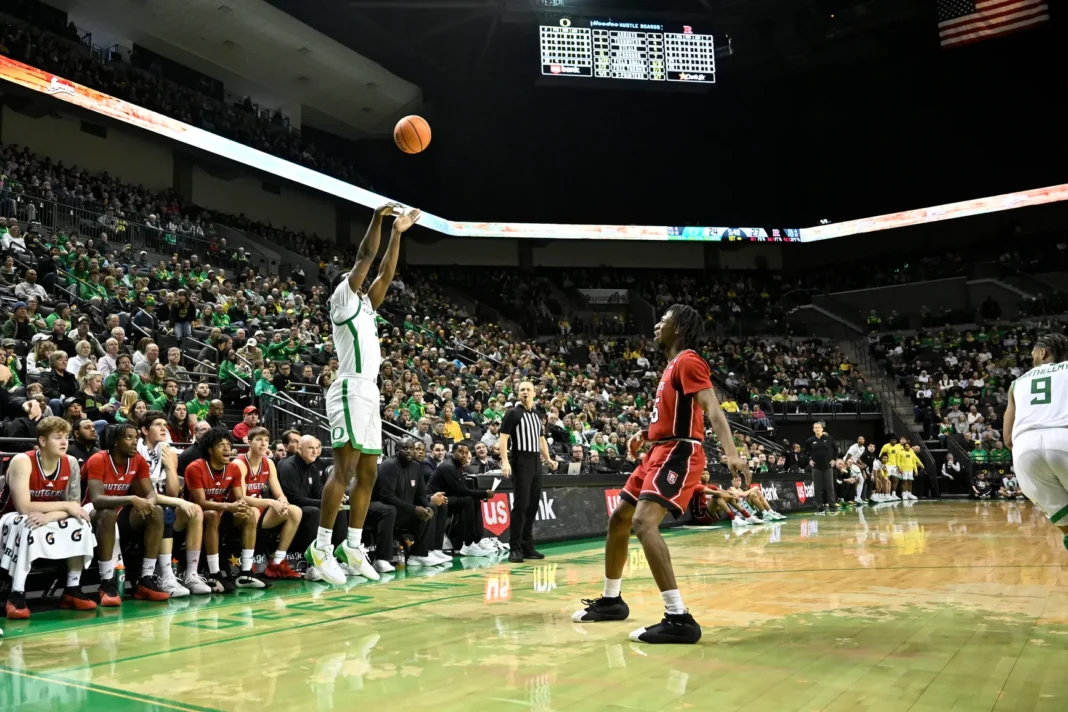Last month, after his UCLA basketball team secured a win at Washington with a tip-off at 8:15 p.m. Pacific Time, head coach Mick Cronin expressed his frustration candidly.
“We should have just had this game at midnight,” he told reporters. “When you sell your soul to television, that’s just the way it is. That’s college sports. We’ve sold our soul to television.”
No conference has compromised more than the Big Ten, which expanded to 18 teams and a coast-to-coast presence, chasing media rights dollars like a dog after a chew toy. The latest consequence of this strategy will unfold on Wednesday, when Rutgers basketball wraps up a two-game West Coast swing at Washington, with a ridiculous tip-off time of 10:30 p.m. Eastern.
To recap: The Scarlet Knights took a six-hour flight to Oregon on Friday, were decisively beaten by the Ducks on Sunday night, and then embarked on a five-hour late-night bus ride north to Seattle. After Wednesday’s game, they will immediately fly home, arriving in Piscataway by mid-morning Thursday.
It’s worth noting that every team in the league faces a version of this absurd situation, although it is particularly pronounced for the coastal programs. The travel schedule does not excuse Rutgers’ poor performance at Oregon, which seemed like a continuation of last week’s lackluster finish against Iowa at home.
However, the men’s basketball program’s first Big Ten West Coast trip highlights the absurdity of this entire setup. The team is set to log 21,700 travel miles during this regular season, easily the most in program history and likely the highest for any Rutgers sports team ever.
St. John’s coach Rick Pitino has it right: These TV-driven conference alignments should be reserved for football, while all other sports should remain in traditional regional leagues. The travel demands for football—limited to a few trips a year, all on weekends—are significantly lower. Moreover, football generates enough revenue to keep the cash flowing for these schools even if it operates independently.
Decoupling football from other sports isn’t rocket science. It would reduce the emphasis on TV programming, which is why Cronin claims college basketball has “sold our soul to television.”
As a result, Rutgers’ soccer, baseball, softball, and tennis teams are compelled to fly to the West Coast for competitions that offer no real benefits. At least those events are scheduled for weekends. Even Rutgers women’s basketball’s upcoming trip west does not involve a Wednesday 10:30 start time.
You might argue, “Too bad, college athletes are pros now,” but only a small percentage of those being carted around the country during the semester are earning full-time money, while the vast majority are working toward degrees that will be essential when they don’t make it in professional sports.
If that argument doesn’t resonate with you, consider Maryland coach Kevin Willard’s insightful comment a couple of years ago regarding the Big Ten’s fixation on late tip-offs and Sunday night games wearing players down: “There’s a reason why they haven’t won a championship since 2000.”
The situation is worse than ever now, and it didn’t have to unfold this way. The Big Ten could still be financially successful without Rutgers playing in Seattle at 10:30 on a Wednesday in February. Instead, the conference has become a bloated sellout that consistently underachieves every March.
One might even say that’s justice.


